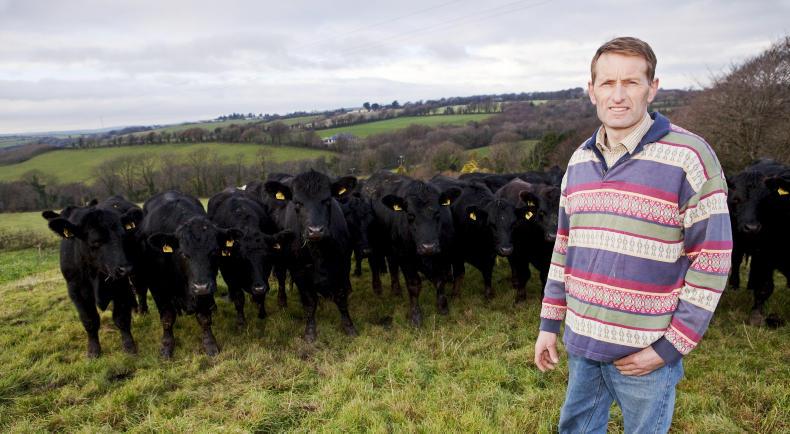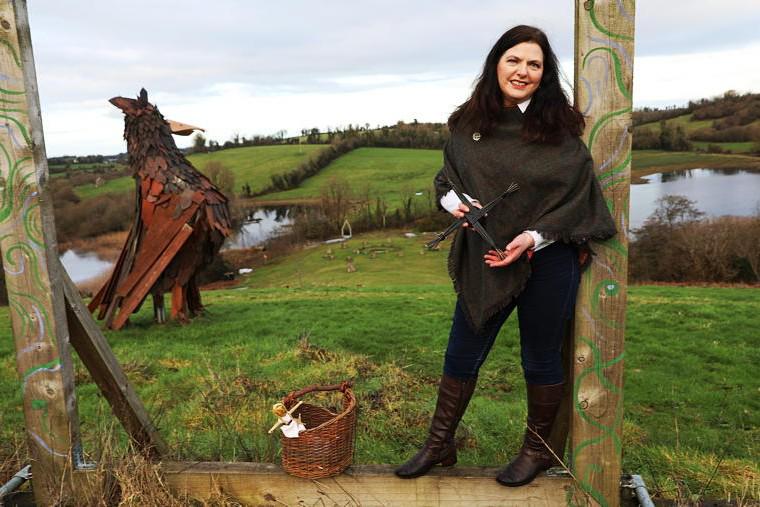There was a palpable sigh of relief around the country when the Government announced that the farmers’ markets were included with garden centres and hardware stores on the list of businesses that could resume trading after 18 May.
The sudden closure in mid-March stunned farmers and food producers who had assumed, not unreasonably, that farmers’ markets would be considered an essential part of the local food chain. After all, they increase sustainable access to healthy affordable food and bolster the local economy, which is so important, in the midst of this worldwide health and economic crisis.
While shops were provided with a series of guidelines to follow in order to continue trading, no such opportunity or support was granted to farmers’ markets
While shops were provided with a series of guidelines to follow in order to continue trading, no such opportunity or support was granted to farmers’ markets. The English Market in Cork courageously continued to trade complying with all social distancing regulations.
Needless to say, Dan and Ann Ahern’s organic hens kept laying and their Jersey cows kept producing rich milk. Joe and Sandra Burns’ vegetables kept on growing, as did David Barry’s from Carrigtwohill.
Jane Murphy’s multi-award winning Ardsallagh goats cheese continued to mature, but her business evaporated overnight when restaurants and hotels closed their doors.

Jane Murphy of Ardsallagh Goats Cheese.
Jane and her team, like many others, were left reeling when the only opportunity to sell their cheese was suddenly snuffed out. These are just a handful of examples out of the 32 stallholders in the farmers’ market in Midleton. There are similar stories around the country, particularly in rural areas.
Creative Solutions
After the initial shock, desperation forced many to come up with creative ways to sell their produce to their local community. The Aherns opened a pop-up farm shop on Saturday mornings at their farm gate in Dungourney, just outside Midleton. Ballinrostig farmhouse cheesemakers, Michelle Cashman and Stephen Bender, set up an “honesty box” by the roadside so passers-by could pay for a wedge of their Gouda-type cheese.

The Aherns opened a pop-up farm shop on Saturday mornings at their farm gate in Dungourney, just outside Midleton. \ Donal O'Leary
Others like artisan fish smoker Frank Hederman of Belvelly Smokehouse, Gubbeen Farm in west Cork and St Tola goats cheese in Co Clare, all set up an online service to deliver to customers nationwide.
Caroline Robinson has been selling her Robinson’s Chemical Free Vegetables at the Coal Quay Farmers’ Market in Cork city since the day it was established in May 1996. She too feels strongly that closing the markets because of COVID-19 was the wrong decision. Fortunately, much of the sector has been resilient enough to find alternative solutions.
When the markets shut, she and her family were left scrambling to adjust to the new reality. However, Caroline – who manages the Coal Quay Farmers Market – is determined to learn from this experience.
It is vital that farmers’ markets are set up in such a way that they are safe for both traders and the public
“It is vital that farmers’ markets are set up in such a way that they are safe for both traders and the public amid this pandemic. If we work together, we can establish secure parameters and protocols to keep our markets safe and open now in the event of another international crisis. From this point forth, farmers markets should be classified as an essential service.”
Some traders set up collection points in car parks, others offered contactless deliveries for those who were “cocooned” in their area. Entrepreneurial artisan baker Muller O’Connell from Abbeyleix set up a delivery service to send sourdough bread around the country to compensate from the loss of sales at the local farmers’ markets. Although many have just about managed to survive by various innovative means, nonetheless there are cases of real hardship.
NeighbourFood
NeighbourFood, an online market established in Cork by Jack Crotty in 2018, provided part of a solution for many producers. There are now 39 branches around the country, including one here at the Ballymaloe Cookery School.
Customers order and pay online a couple of days ahead. Producers deliver and customers do a contactless collection at allocated time slots. Producers are paid 80% of the retail price within three days.
Open-air markets allow for greater social distancing, while the nature of temporary stalls offers the ability to be flexible in an ever-changing social landscape
During “lockdown”, there has been a sea change in the public’s attitude to buying local food. People have discovered treasures in their own parishes, selling sustainable seasonable produce – from fresh vegetables, home-baking, farmhouse cheeses and charcuterie to eggs and poultry, fresh fish, bunches of homegrown flowers and fresh herbs.
Adapting To The ‘New’ Normal
The physical aspects of farmers’ markets may actually make them safer than shops. Open-air markets allow for greater social distancing, while the nature of temporary stalls offers the ability to be flexible in an ever-changing social landscape. Systems have been implemented to allow customers to arrange preorders and pickups directly from stall holders. The produce itself is part of a supply chain, meaning that food passes far fewer hands than in retail outlets, minimizing the risk of cross-contamination.
The reopening of the farmers’ market may also take some of the pressure off supermarkets who are having to cope with queues and scarce supplies, whilst also reducing the demand on imported goods.
Support Each Other
In times of crisis, it is crucial that urban and rural communities unite in support of one another. Farmers markets are critical venues for providing healthy affordable food to those who need it, creating a direct connection between producer and consumer.
Join us in the fight to support our local producers, empower our consumers and bring back our farmers market once and for all.
There was a palpable sigh of relief around the country when the Government announced that the farmers’ markets were included with garden centres and hardware stores on the list of businesses that could resume trading after 18 May.
The sudden closure in mid-March stunned farmers and food producers who had assumed, not unreasonably, that farmers’ markets would be considered an essential part of the local food chain. After all, they increase sustainable access to healthy affordable food and bolster the local economy, which is so important, in the midst of this worldwide health and economic crisis.
While shops were provided with a series of guidelines to follow in order to continue trading, no such opportunity or support was granted to farmers’ markets
While shops were provided with a series of guidelines to follow in order to continue trading, no such opportunity or support was granted to farmers’ markets. The English Market in Cork courageously continued to trade complying with all social distancing regulations.
Needless to say, Dan and Ann Ahern’s organic hens kept laying and their Jersey cows kept producing rich milk. Joe and Sandra Burns’ vegetables kept on growing, as did David Barry’s from Carrigtwohill.
Jane Murphy’s multi-award winning Ardsallagh goats cheese continued to mature, but her business evaporated overnight when restaurants and hotels closed their doors.

Jane Murphy of Ardsallagh Goats Cheese.
Jane and her team, like many others, were left reeling when the only opportunity to sell their cheese was suddenly snuffed out. These are just a handful of examples out of the 32 stallholders in the farmers’ market in Midleton. There are similar stories around the country, particularly in rural areas.
Creative Solutions
After the initial shock, desperation forced many to come up with creative ways to sell their produce to their local community. The Aherns opened a pop-up farm shop on Saturday mornings at their farm gate in Dungourney, just outside Midleton. Ballinrostig farmhouse cheesemakers, Michelle Cashman and Stephen Bender, set up an “honesty box” by the roadside so passers-by could pay for a wedge of their Gouda-type cheese.

The Aherns opened a pop-up farm shop on Saturday mornings at their farm gate in Dungourney, just outside Midleton. \ Donal O'Leary
Others like artisan fish smoker Frank Hederman of Belvelly Smokehouse, Gubbeen Farm in west Cork and St Tola goats cheese in Co Clare, all set up an online service to deliver to customers nationwide.
Caroline Robinson has been selling her Robinson’s Chemical Free Vegetables at the Coal Quay Farmers’ Market in Cork city since the day it was established in May 1996. She too feels strongly that closing the markets because of COVID-19 was the wrong decision. Fortunately, much of the sector has been resilient enough to find alternative solutions.
When the markets shut, she and her family were left scrambling to adjust to the new reality. However, Caroline – who manages the Coal Quay Farmers Market – is determined to learn from this experience.
It is vital that farmers’ markets are set up in such a way that they are safe for both traders and the public
“It is vital that farmers’ markets are set up in such a way that they are safe for both traders and the public amid this pandemic. If we work together, we can establish secure parameters and protocols to keep our markets safe and open now in the event of another international crisis. From this point forth, farmers markets should be classified as an essential service.”
Some traders set up collection points in car parks, others offered contactless deliveries for those who were “cocooned” in their area. Entrepreneurial artisan baker Muller O’Connell from Abbeyleix set up a delivery service to send sourdough bread around the country to compensate from the loss of sales at the local farmers’ markets. Although many have just about managed to survive by various innovative means, nonetheless there are cases of real hardship.
NeighbourFood
NeighbourFood, an online market established in Cork by Jack Crotty in 2018, provided part of a solution for many producers. There are now 39 branches around the country, including one here at the Ballymaloe Cookery School.
Customers order and pay online a couple of days ahead. Producers deliver and customers do a contactless collection at allocated time slots. Producers are paid 80% of the retail price within three days.
Open-air markets allow for greater social distancing, while the nature of temporary stalls offers the ability to be flexible in an ever-changing social landscape
During “lockdown”, there has been a sea change in the public’s attitude to buying local food. People have discovered treasures in their own parishes, selling sustainable seasonable produce – from fresh vegetables, home-baking, farmhouse cheeses and charcuterie to eggs and poultry, fresh fish, bunches of homegrown flowers and fresh herbs.
Adapting To The ‘New’ Normal
The physical aspects of farmers’ markets may actually make them safer than shops. Open-air markets allow for greater social distancing, while the nature of temporary stalls offers the ability to be flexible in an ever-changing social landscape. Systems have been implemented to allow customers to arrange preorders and pickups directly from stall holders. The produce itself is part of a supply chain, meaning that food passes far fewer hands than in retail outlets, minimizing the risk of cross-contamination.
The reopening of the farmers’ market may also take some of the pressure off supermarkets who are having to cope with queues and scarce supplies, whilst also reducing the demand on imported goods.
Support Each Other
In times of crisis, it is crucial that urban and rural communities unite in support of one another. Farmers markets are critical venues for providing healthy affordable food to those who need it, creating a direct connection between producer and consumer.
Join us in the fight to support our local producers, empower our consumers and bring back our farmers market once and for all.









![George Lamb: ‘we have to find the sweet spot [in agriculture]’](https://s3-eu-west-1.amazonaws.com/ifj/WEBFILES/000/867/584/2372033-867584.jpg)

SHARING OPTIONS